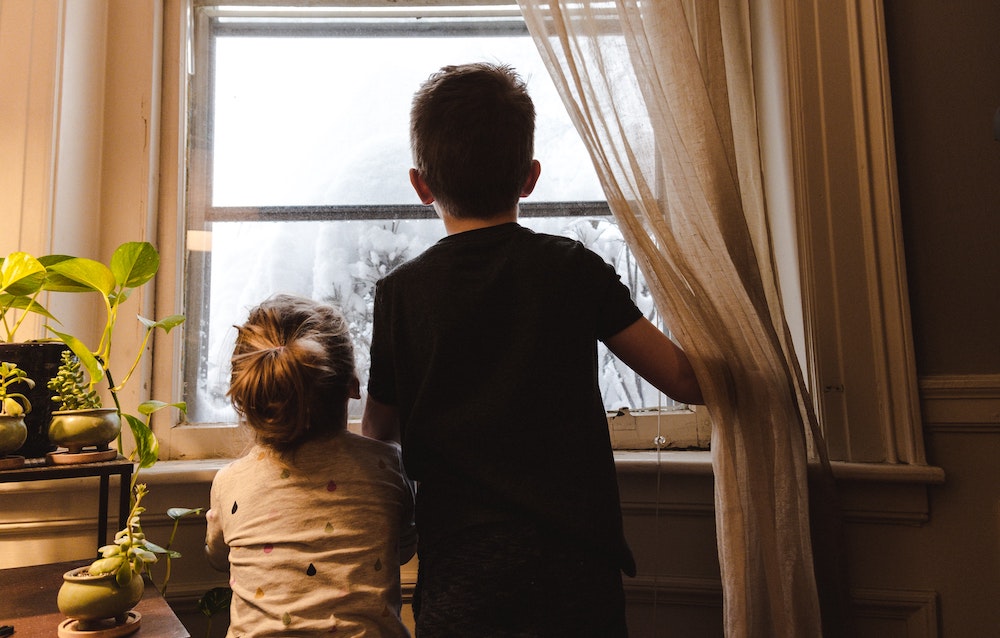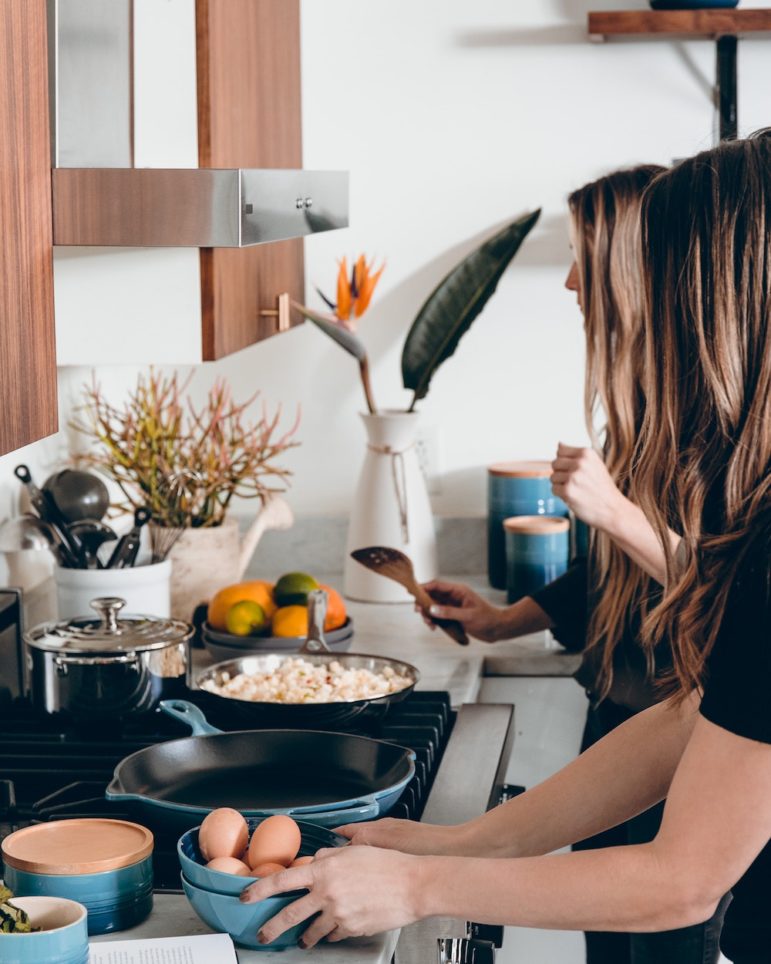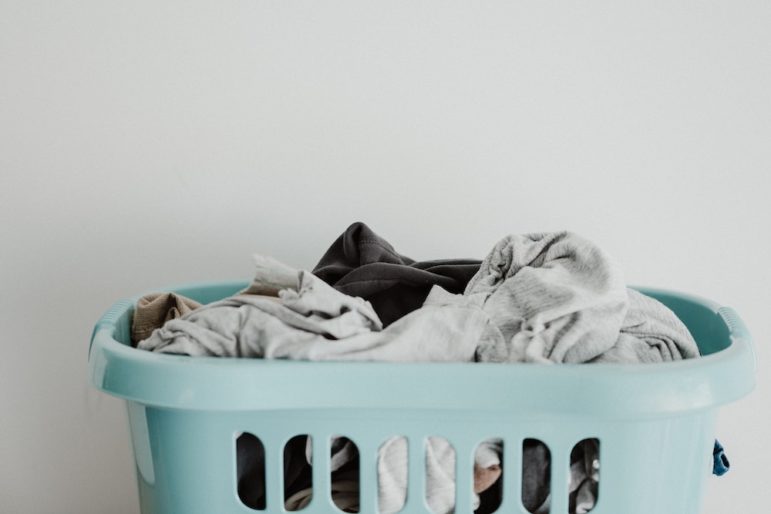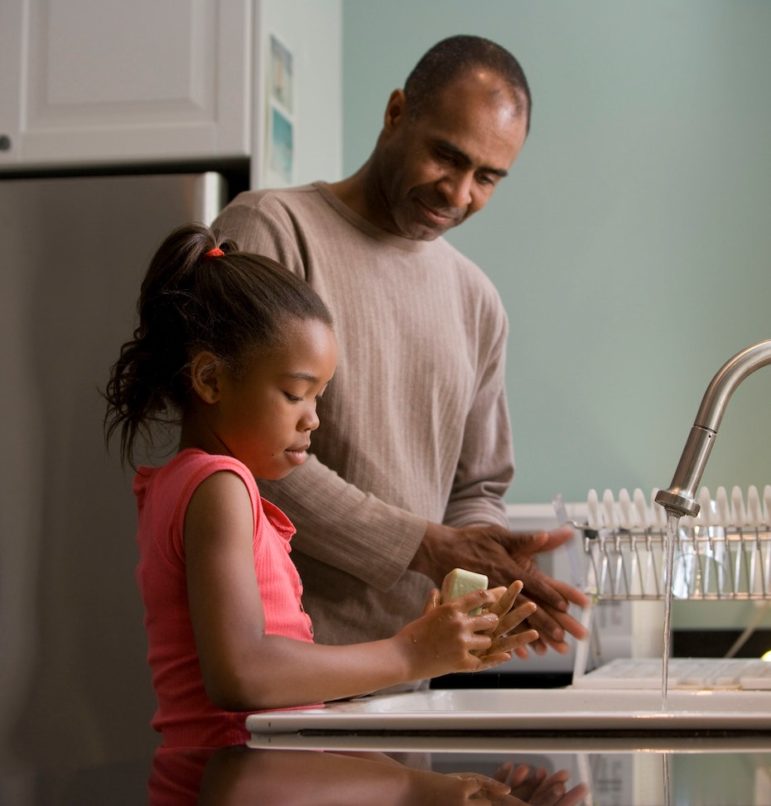‘Routines help us cope;’ ‘enlist household members in planning routines,’ ‘get exercise’ are some of the insights and advice from the PUSD Wellness Center for individuals and families to stay healthy, balanced and hopeful during this difficult, unprecedented time.
Dear PUSD Families and Staff and the Piedmont Community,
We are so happy to hear that our last letter was helpful for some of you. It is our hope that for the remaining Fridays of this school year we can continue to provide you with information, resources, and strategies that support the mental and emotional wellbeing of our community during this novel and trying time of living in isolation.
It has been about five weeks since we have all collectively started living in isolation. Many of us are isolating at home with multiple family members and it might feel like things are intensifying as the reality is setting in that our normal summer outlets like summer camps and vacations won’t be happening as planned.
Some houses are fuller than they were a few months ago with young people moving back home. We are spending more time with our partners and our children without the built-in breaks from one another that used to be afforded to us through commutes, days spent at work or school, or meeting up with friends. Families are learning how to adjust to spending more time together than ever before.
Understanding what it means to ADJUST to our new realities
In mental health, the term adjustment refers to a process whereby there is a need followed by an impediment to that need. In our case, the need is for connection and to have our old lives back, that is, to feel a sense of normalcy. The impediment is something we did not ask for, something undesired that prevents us from obtaining what we need – sheltering in place. We then respond to this impediment by exploring solutions for how we are going to move through this change, and finally we come to a resolution – ultimately we adjust.
We are all collectively adjusting to a new, temporary normal right now in our own unique ways. Feelings ebb and flow and that is a normal and healthy response to the context of life. There is a range of normal, healthy ways to adjust and protect ourselves from what can feel very much out of our control.
In psychology we think of these as protections and there are some adaptive ones like intellectualization:
- Many may feel better when they get their hands on the latest data.
- Others engage in altruistic actions like sewing masks for frontline healthcare workers
- And some go straight to humor.
If we find that the ways in which we or a loved one are adjusting are becoming problematic like engaging in excessive use of substances or withdrawal it may be time to ask for help from one of the numbers we have included at the end of this letter. Reflecting on how we are adjusting can help us make sense of our feelings and emotions in the here and now.
Incorporating routines into daily life can not only feel grounding, but can also help regulate mood.
One way to mitigate the difficulty of an adjustment period is to develop routines or rituals, which can provide a sense of grounding and security for all of us and especially our children.
Keep in mind that every family is going to value different routines. What works well for one family may not work at all for another. You are the expert on your own family. You may need to experiment with several iterations of your routines until your family finds one that clicks and that is okay. Remember, we have never sailed these waters before. So how could we possibly know what works until we try?
Include all household members – especially children – in planning routines
And finally, soliciting our children to provide input into creating family routines will support them through engaging the rational, problem solving part of their brain that we want them to be developing. Also, chances are that by inviting them to participate in this process of creating family routines they are more likely to be invested and feel like an integral part of the family.
Suggestions:
Here are some general examples of routines that anyone can implement and most importantly, these routines can be tailored to fit the unique needs and culture of your family.
- Keep to a schedule, and help your child(ren) do the same. A schedule can reduce the mental effort and fatigue that results from decision making and planning. Invite your child(ren) to participate in the process. However, allow yourself some flexibility! It’s okay to have a day here or there spent in pajamas, for example, if that makes your family happy and is what is needed on that particular day! As we said before, you are the expert on your own family. Also, consider weekends to be a time for a break from the schedule, a time to recharge.
- Carve out time to practice mindfulness or meditation. It can be as short as 5 minutes. It can be something that a family does together or individually. Mindfulness and meditation can help regulate significant dips or spikes in our feelings and emotions that are common experiences during a period of adjustment.
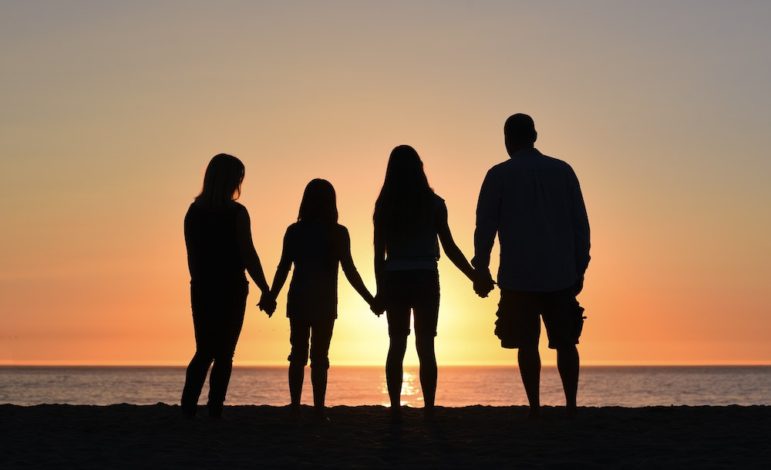
Recognizing the impermanence of the situation and introducing HOPE
“Right now it’s like this.” This quote is from a teacher in the Theravada meditation tradition.* “Right now it’s like this.” Right now everyone is doing their best to adjust to living in isolation. Right now we can’t hug our friends or go to school. Right now we can’t see live music or take our kids to the park or share meals with neighbors. “Right now it’s like this” also implies that life won’t always be this way. There is an element of impermanence in this mantra. There is hope. Identifying a simple mantra that resonates with you, such as “Right now it’s like this,” that you can call up any time of the day as needed can be quite comforting. There is also space to hold hope.
- Teens in particular might feel uplifted by watching stories that highlight positivity and hope during this time of COVID-19 https://www.youtube.com/watch?v=F5pgG1M_h_U
- Get plenty of sleep. A sleep deprived brain is an anxious, inattentive brain. Good sleep hygiene actually begins during the day. When we wake up in the morning and invite the sunlight in, we are in effect shutting down the melatonin in our bodies, signaling to our brains that it’s time to stay awake. With many of us not leaving the house to commute to work or school lately we may be finding that the mornings are more challenging because we are not getting that dose of Vitamin D from the sun to shut down the melatonin as we once did.
- Exercise daily. Go for a walk, hike, or bike ride – while maintaining physical distancing. Take advantage of the many synchronous and asynchronous exercise classes online. We recommend these community-based, free LIVE exercise classes organized by local fitness instructors who are volunteering their time. The bonus is socially connecting with others! Sweat in place: www.sweatinplace.com/calendar. Students may also tune into the PHS psychologist’s LIVE yoga classes here: Live YOGA and mindfulness classes with PHS/MHS school psychologist Fridays 10am
- Enlist your family in designing some general expectations for this time. Maybe after breakfast everyone gets dressed and brushes their teeth before the school or work day starts, or everyone gathers together at dinner time. Depending on the age(s) of your child(ren), they could plan and cook a family meal during the week. Kids feel better about themselves when they are making positive contributions. Finding ways that kids can experience accountability and be a productive member of the family right now through carrying out chores and showing up for family time can even be a protective factor against depression.
Moods may be more fragile as we process change and loss
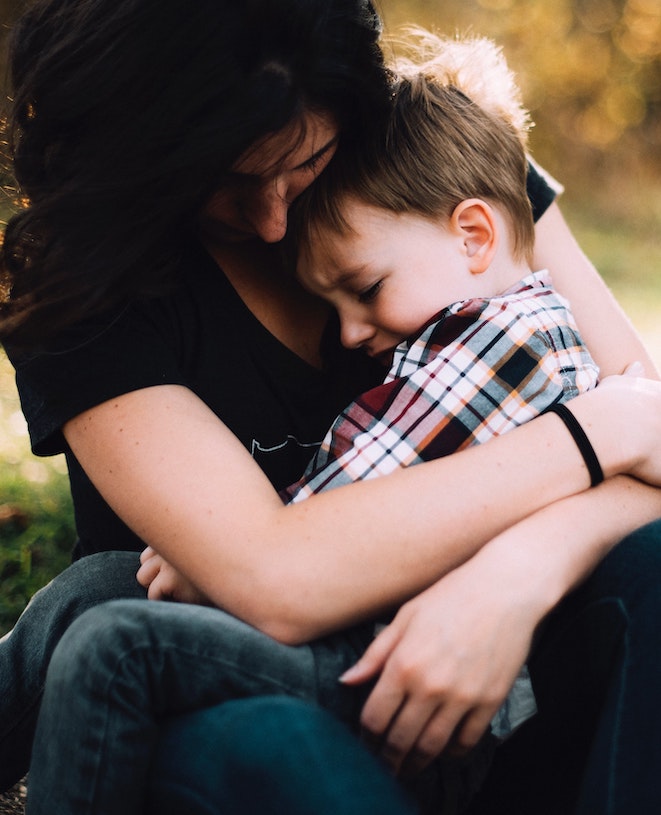
As parents and caregivers, you are probably noticing that everyone in your home is adjusting in a different way which is reflected in varying moods, behaviors, and emotional states. Our kids’ moods might be more labile these days. They may appear more irritable, you may get more pushback, and it might even at times feel downright hard to be around them – all of that would not be out of the norm!
As parents, we can take a few mindful breaths, be curious about the source of their push back, and ultimately find compassion for our kids. Many are reeling right now from the loss of much anticipated milestones in their lives that they have placed so much value on, such as not experiencing prom or a graduation ceremony, losing the opportunity to spend time with friends at summer camps, or not being able to celebrate their birthdays the way they had hoped.
Keep in mind that kids do not have the life perspective that we as adults have – it is probably hard for them to imagine the many more milestones to be had in their young lives. And above all else, we hope that parents will not forget to hold some compassion for themselves through this time of adjustment.
It is important to know when and how to ask for help.
Although a range of feelings and behaviors are normal and expected during this time (see below), if these feelings are seriously interfering with your or your child(ren)’s ability to cope or causing worsening of pre-existing mental health challenges, it is time to ask for help. For example, while it is normal for adolescents to engage in some self-isolation in their rooms during this time, excessive self-isolation accompanied by other symptoms such as a consistently low mood may indicate a need for intervention.
Resources
- Wellness Center supervisors are available by phone, email, or HIPAA compliant video conference to provide by appointment parent consultation and/or referrals to private therapists in the community.
- Wellness Center therapists are available to provide confidential HIPAA compliant teletherapy sessions for students in ALL grades during the COVID-19 closure. Parents and older students may use this referral form. Same day appointments may be available.
- Family Paths offers a 24-hour parent stress hotline offering free, confidential support.
- Alameda County 24-hour crisis support line
- Contra Costa County 24-hour crisis line
- National Suicide Prevention Lifeline: 1-800-273-8255 (TALK)
- 24-hour crisis text line
- National Domestic Violence Hotline can help victims and survivors of domestic violence. Call 1-800-799-7233.
- For support with substance use problems, please see SAMHSA or East Bay AA.
Have a question or topic you’d like to see us address?
Email us at: ahazer@piedmont.k12.ca.us and/or acrovetti@piedmont.k12.ca.us and we’ll try to feature your topic in an upcoming week.
In Wellness,
Amy Hazer, LCSW
Licensed Clinical Social Worker
ahazer@piedmont.k12.ca.us
Alisa Crovetti, Ph.D.
Licensed Psychologist.
acrovetti@piedmont.k12.ca.us | 510-882-2771
*During a recent Zoom meditation group, local meditation leader Amiee Peri shared the following quote from a teacher in the Theravada tradition named Ajahn Sumedho, “Right now it’s like this.” We are fortunate to have local folks like Amiee currently leading live virtual meditation sessions for adults and youth. You can contact her here to find out more about her meditation offerings (periamiee@gmail.com). Also, here are some mindfulness and meditation apps to try: Unwinding Anxiety and Headspace. And go here for some Mindfulness Meditation Instructions.
